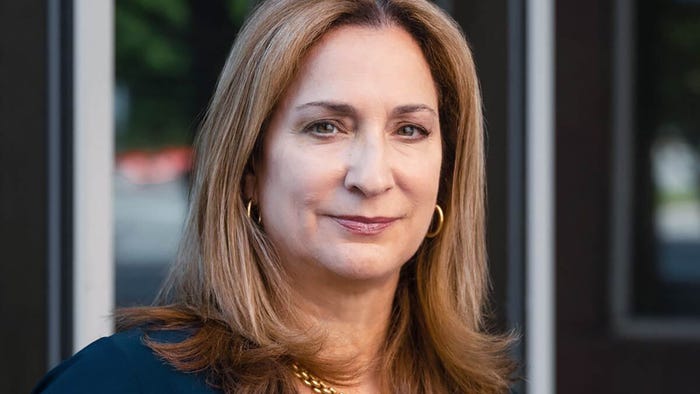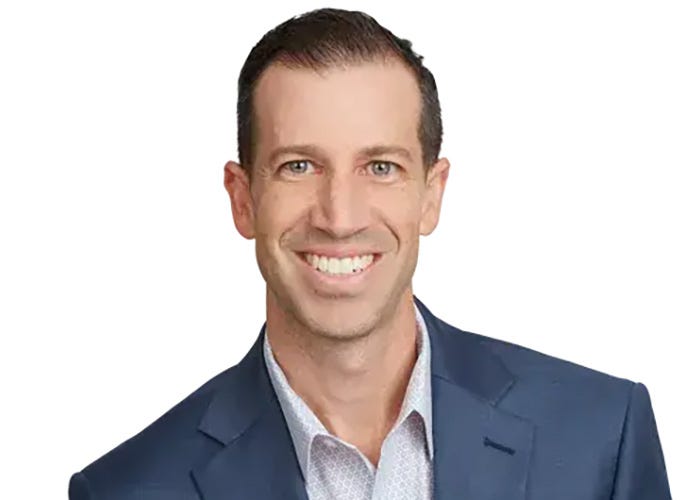Registered investment advisor Halbert Hargrove has strived to build its firm on a unique business model in an industry known for aggressive recruiting and poaching: training and hiring interns.
Kelli Kiemle, managing director of growth and client experience at Halbert Hargrove, said the Long Beach, Calif.-based RIA often has five to six college interns at the firm at any given time. It also has a dedicated intern manager who runs the program, recruits interns and meets with them weekly.
“We actually have 10-plus employees at this point that have come from our intern program,” she said. “All of them are at different stages of their career, with some people who are just recently graduated, and I have a couple of interns who have been with us for 10-plus years and are at higher-level positions in the firm.”
Halbert Hargrove is among what industry watchers say is a relatively small group of RIAs with dedicated internship programs. These types of programs are rare, but much needed, said Jimmy Zhao, a partner in McKinsey’s Boston office and lead author of a much-quoted report forecasting a shortage of 100,000 financial advisors by 2034.
“An internship program can be an effective way to help bridge that gap and bring talent into the industry,” Zhao said. “It is also a way to differentiate your firm at this stage.”
Despite what should be the attractiveness of wealth management, Zhao said there “seems to be a reality-perception gap” for students when considering career options.
Several colleges and universities, as well as financial planning programs such as the CFP, are trying to change that. For example, Utah Valley University in Orem, Utah, consistently ranks as one of the country’s best financial planning programs. Founded in 2011, it now has more than 300 enrollees a year.
“Many of our students come from blue-collar backgrounds and work part-time or full-time while in school,” said program director Scott Stratton. “Their drive to succeed in a demanding academic and professional environment is a big part of what sets our program apart.”
Stratton added the school maintains relationships with dozens of local and national wealth management firms, which helps source internship and full-time employment opportunities.
“Our students are often embedded within firms while still completing their degrees, gaining practical experience and building long-term career paths,” he said. “The feedback from firms has been overwhelmingly positive, often noting how prepared and professional our students are from day one.”
Talent Acquisition Strategy
New York-based Modera Wealth has been actively recruiting on college campuses to find talent and get first-person feedback from the younger generation, according to Laurie Vitali, the firm’s chief people officer. This summer, five students are completing 10-week internships with the firm, an initiative it has had in place for about seven years.
Vitali said an essential part of establishing a strong program is first assessing the local offices’ needs.
“One of the most important things is making sure that the offices that you’re recruiting for have a need for an intern, and that you define the program, so when the intern comes in, it’s both a benefit to the office and to the intern,” she said. “We want them to really get some hands-on experience and some meaningful work over those 10 weeks.”

Laurie Vitali: Modera Wealth actively recruits on college campuses for its 10-week internship program.
Vitali said the RIA message of being a trusted fiduciary to a client will resonate with the next generation, and the more they understand it, the more they’ll be drawn to the space.
“I feel like today’s generation wants to hear authenticity in the organizations they join,” she said. “That’s what makes an internship program so valuable. They’re immersed in it and can see what the culture is about. They can see the differentiator in what and how an RIA operates versus an advisory that’s selling products as well.”
Modera had early success with its internship when it was a smaller firm in 2008. Kelly Henning, now a principal with the firm, started in the program, not knowing much about wealth management. Henning took a role in client services and then steadily climbed the ranks, becoming a financial advisor and eventually joining the firm’s leadership team.
That was a far cry from when she started.
“Prior to my internship, my only real knowledge of investing was what I had heard about Wall Street,” Henning said. “I wasn’t really aware of what comprehensive wealth management was.”
Henning’s internship took place during the Great Financial Crisis, which she said was impactful because it showed her how important financial advice is for people and why she wanted to pursue it as a career.
“I was able to really see the passion that the Modera advisors had to help clients,” she said. “I saw the advisors with their calm and reassuring words to clients. It showed me how I could really help others through financial planning and make them feel confident that they could reach their retirement and their personal goals. I thought that would be an admirable way to build a career.”
Today, interns like Phoebe Switzer, who is coming to the end of one year at Halbert Hargrove, are often interested in financial services, but aren’t aware of the wealth management space. Switzer found her way to Halbert Hargrove when she met Kiemle at a fitness center where Switzer was working the front desk. On Switzer’s first day at Halbert Hargaves, she was impressed by the warm welcome from everyone at the office and those working remotely.
“My manager took me on a tour throughout the office,” she said. “Everyone that I met in the office that day asked me how I was and said I could come to them with any questions. Many had been interns themselves. They made me feel very comfortable on my first day.”
Switzer and her peers start the day by checking a queue of items. This includes assisting with client meeting preparation for advisors and working on client proposals. Switzer said she enjoys helping organize client notes because it allows her to read through their financial lives and understand their issues, goals and needs.
“I’ve learned so much from reading these notes about clients and their needs and goals,” she said. “We also categorize them with the list of all of HH’s services, and we see where their needs fit with what we can provide.”
Now, the University of Southern California Marshall School of Business student is coming to the end of her one-year internship and is considering a career in financial planning. She may not, however, become a wealth manager. She is interested in the marketing and client proposal areas of the business.
Range of Opportunities
David Ford, director of human resources and talent at Lido Advisors, a Los Angeles-based RIA, said the firm’s internship program seeks to show participants the range of options available in the space, in addition to wealth management.

David Ford: Lido Advisors’ internship program has grown from nine interns two years ago to 22 this summer.
“We will screen and ask the questions up front about what they may be interested in,” Ford said. “Whether that client-facing, talking about investments, finances, or trusts, in which case it may be more of a wealth management track. Or it could be working with our alternative investments’ operations team, or working on data and analytics, or legal and compliance, which is huge for us as an RIA.”
Lido Advisors is also building its employee base through a program that includes hiring recently graduated students or bringing on current students part-time.
“Last summer we had 13 interns in the program, and the year before that we had nine,” Ford said. “This year, we have 22 interns across the company starting on June 9.”
That robust class size is partly due to Ford and Lido leaning into the program after seeing results. The interns contribute while at the firm, five of whom have become full-time staffers.
Ford said recruiting the interns, which begins in January and February for the summer, takes many forms. One is through Handshake, a college job recruiting service. Another is through referrals from wealth managers who have “these great, wide networks,” which Ford’s team will keep as a running list for potential candidates.
Another area is strategic partnerships, such as one the firm runs with C5LA, a foundation that seeks to help people find work for teens in under-resourced communities.
According to Halbert Hargrove’s Kiemle, the more embedded internship programs become at RIAs, the more likely they will be to help advance the thinking and workflows at the firms themselves.
“We’re past the point of asking questions like ‘is this worth it?’” she said. “It’s work and resources. But one of our core values is that we’re innovative, and honestly, we wouldn’t be able to be as innovative as we are right now without the interns. They’re adding a lot of value to our firm at this point, but it took years for us to get up and running, and it’s taken us evolution to get where we are today.”
#Role #Internships #Filling #Advisor #Pipeline